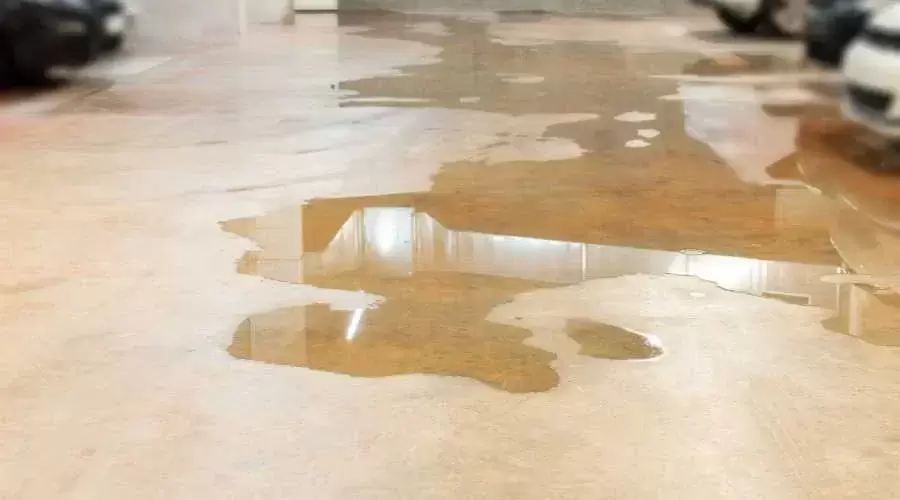It’s a good idea to have a floor drain in your garage to collect and redirect any water or liquids that may leak or spill because it may be used for so many different purposes. Naturally, debris and filth find their way into the garage floor drain as well, which might result in a clog.
By removing the solid obstruction, garage floor drain blockages may typically be cleared. The grate can be removed, the material collected, and the drain flushed with hot water to accomplish this quickly.
It’s crucial to note that there are two primary types of garage floor drains before we move on to the steps. The most typical type is called a round floor drain, and it consists of a circular hole in the concrete floor that is about a foot in diameter and is covered by a grate. The second kind is a trench drain, which collects water through a long, rectangular aperture on the floor. Although they are more expensive to construct, trench floor drains are less likely to become clogged.
Circular Floor Drains
The most typical style of garage floor drains is round. This is so that they are less expensive and simpler to deploy. The metal grate on a round floor drain is typically embedded into the concrete. They typically have a width of around a foot and can be found in the center of your garage.
Trench Floor Drains
Due to the way they are built, trench floor drains are a little more difficult. These drains are typically built near the door or in the corners of a garage. They are rectangular in shape and many feet long. Their trenches are embedded in the floor, and a grate is placed over them. They go by the name “channel drains,” and are more expensive than round floor drains, rare, and more difficult to install. These drains do not clog as frequently as round floor drains do because of the manner they are constructed and fitted.
No matter what kind of garage floor drain you have, the majority of clogs may be cleared using the same straightforward process.
These procedures will help you clear a blocked or backed-up floor garage.
- Start by locating the drain in your garage using the earlier descriptions we gave you. The concrete floor will slope toward the drain to guide water there, so keep that in mind.
- Take the grate off. The metal grating that encloses the drain must be removed either by unscrewing it or by prying it off. The grate itself may have been clogged in the first place if it is littered with garbage.
- Check the drain for obstructions. You’ll need gloves, a flashlight, and a tiny tool, such as a trowel or screwdriver, for this stage. See if there is any debris in the floor drain, such as leaves, pet hair, paper products, clumps of dirt, or any solid things, by looking down the pipe. For lack of a better term, use your tool to clear the drain of as much gunk as you can.
- Flow hot water down the drain. After clearing the drain of any debris, pour hot (but not boiling) water down the drain to break up any residual material and force it through the pipe. The use of chemical drain cleaners is not advised.
- Re-secure the grating. The next time it accumulates water or liquids, clean the area and keep a watch on the drain to see whether it is still clogged or backed up.
Why Do Garage Floor Drains Get Clogged?
The most frequent reasons why garage floor drains become clogged are as follows:
- Leaves and Debris: During rainstorms or when you’re cleaning up in the garage, leaves, dirt, and other debris can easily wash into your floor drain.
- Loose Hair: Long hair from animals or people can frequently become lodged in the grate of a floor drain, clogging the entrance and impeding water flow.
- Paper Goods: Paper towels, toilet paper, and other paper goods can all easily find their way into the floor drain in your garage.
- Grease and Oil: When they enter the drain, cooking grease, oil, and automotive fluids can harden, causing clogs and backups.
- Freezing Temperatures: If the garage temperature falls below freezing, the pipes may freeze and expand, resulting in jams.
It is possible to avoid typical causes of clogged drains in the garage by taking the appropriate precautions. Always dispose of trash and paper products correctly, keep an eye out for obstructions in the drain grate, and if possible, keep your garage heated. By carrying out these actions, you may help keep your floor drains clean and functional.
If Your Garage Floor Drain Is Clogged When to Call a Plumber
If this straightforward solution doesn’t clear your clogged garage floor drain, you might be dealing with a bigger plumbing issue that needs a professional. Since 1992, Elizabeth Drain Service has provided assistance to homes in the counties of New Haven and Fairfield. Call (908) 988-0365 to arrange for a garage floor drain cleanup.


